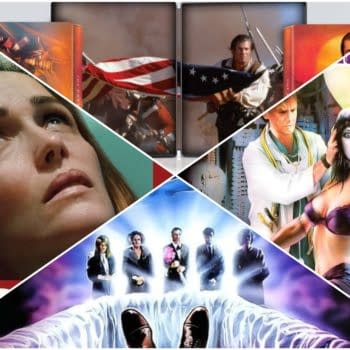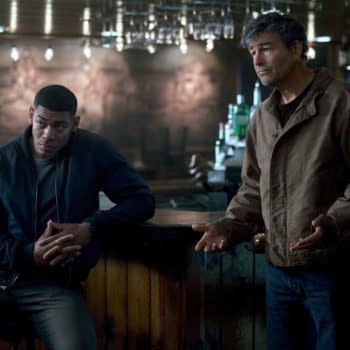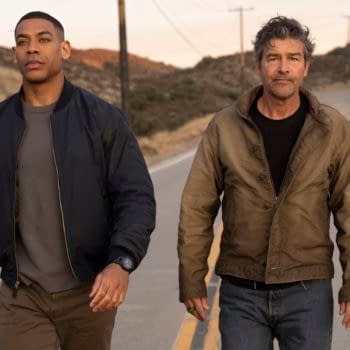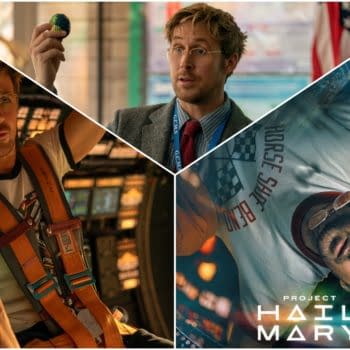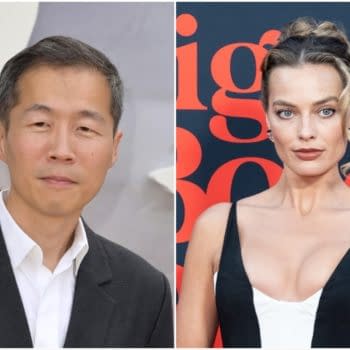Posted in: Movies, Recent Updates | Tagged: entertainment, film, J.J. Abrams, james brolin, Jurrasic Park, Michael Crichton, Richard Benjamin, science fiction, The Magnificent Seven, westerns, westworld, Yul Brynner
Revisiting Michael Crichton's Sci-Fi Western Westworld Upon Rumors Of A JJ Abrams TV Series
By Brandon Engel
Michael Crichton published his first novel in 1966. After enjoying success in the literary world for nearly a decade, Crichton decided to try his hand in a new medium. At age 30, Michael Crichton directed his feature film debut, Westworld. Westworld was innovative, groundbreaking, and fast became a hit among moviegoers and critics alike. Written for the screen by Crichton, Westworld offered an intriguing blend of science-fiction, horror, and classic westerns. The film was genre-shattering and it has withstood the test of time, with talk of a new Westworld television series, Helmed by J.J. Abrams himself…
Crichton's fans might also appreciate the degree to which Westworld anticipated the Jurassic Park series. The film tells the story of a futuristic theme park that provides guests with authentic experiences in a specific-time period. The park, named Delos, is sectioned off into three separate worlds: West World, Rome World, and Medieval World. Each World is designed for the guests to interact with robots that are programmed to behave according to their world's culture. The human-looking robots are purposed to cater to the whim of Delos' clientele, and they have allegedly been created in such a way that they should pose no threat to human guests. "Should" is the operative word in that last sentence.
Friends Peter Martin (Richard Benjamin) and John Blane (James Brolin) visit Westworld to take part in the choreographed gun fight staged for each guest using a robot gunslinger played by film legend, Yul Brynner. Despite the fact that the gunslinger is a robot, Westworld pays homage to the westerns of old, even styling Brynner in an approximation of the costume his character wore in The Magnificent Seven.
Once the robots begin to malfunction, the movie morphs into a science-fiction formula. However, with the allusion to an early computer virus, the cause of the catastrophic robot malfunction was a new fear only Crichton could bring audiences. Westworld also carries the distinction of being the first film to implement digital image processing, an innovation that was a precursor to modern special effects.
As the robot virus spreads, the machines begin to almost develop independent thinking. This point is reiterated by one of the scientists, who admits that they are not entirely sure how the animatronic technology works and that some of the computers were created by other computers. This theme is explored once again by Crichton in Jurassic Park, only the robots are now dinosaurs that begin to adapt and evolve to survive and thrive. Whether or not the robots in Westworld are becoming sentient and free-thinking is a matter of debate, but the idea that has been plated in the psyche of the viewer elevates the movie to the status of yet another genre: horror.
As Martin and Blane battle the robots for survival, the robot gunslinger grows into a classic movie villain, complete with quotable dialogue. The climatic scene with Benjamin and Brynner is considered an iconic cult film scene, often imitated, but never duplicated. The film is a favorite amongst cult director like Robert Rodriguez, who has even increased visibility for the film by showing it regularly through his El Rey Network, which has a sizable viewership because it's carried by DirecTV and Comcast.
Following Westworld's release, Crichton took an entire year off to recuperate, and stayed away from filmmaking for five years. Twenty years after Westworld was filmed and released, Steven Spielberg's take on Jurassic Park was introduced to theater-goers, drawing the inevitable parallels between the two stories. It can even be argued that the two stories are virtually identical in plot, with the dinosaurs and cowboys basically interchangeable. Both stories feature theme parks designed to entertain the masses, but the attractions go awry and begin to revolt, endangering their makers. Both stories can be viewed as cautionary tales for the future of technology and ethics.
Crichton continued to explore the scientific world, examining nature, weather, medicine, and technology, and raising questions about humankind and our interaction with the world around us, but mostly, he was simply a great storyteller.
Brandon Engel is a Chicago based blogger who writes about everything from old school comic books to gothic horror literature to environmental law. Follow him on Twitter: @BrandonEngel2













